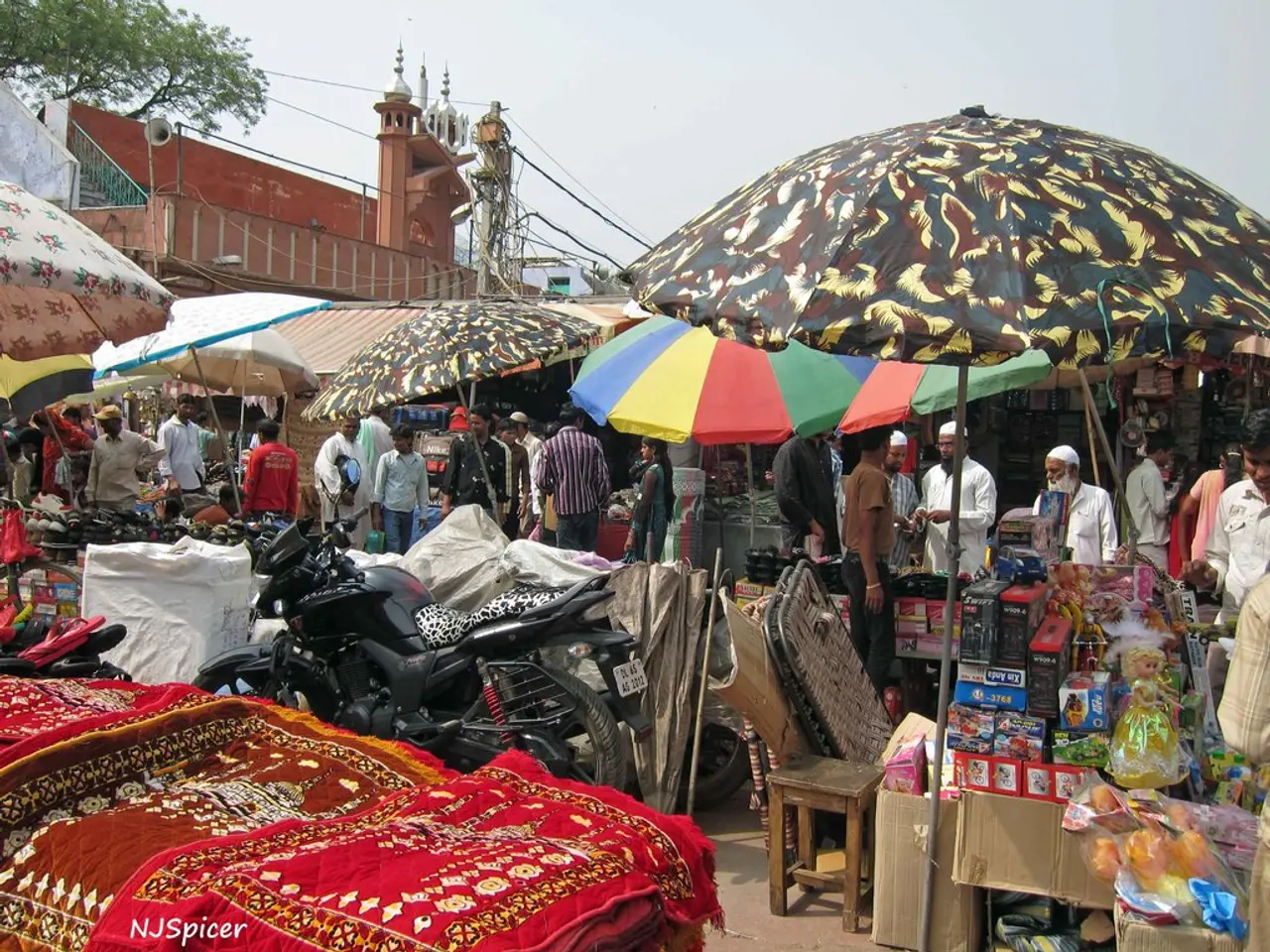Political Landscape of the Arab Nations
The United States launched a democratization program for the Middle East a few years ago, with the intended purpose of ensuring better stability in certain countries, including some Gulf countries. The program aimed to foster domestic political openness and the inclusion of emerging elites in decision-making processes.
Jordan was mentioned as a model for the region by US President George W. Bush, due to its long-standing tug of war between the government and Islamists. The latter were included to some degree in parliament and specific ministries, a practice that was considered in other countries as well. However, the US has concerns about the position of these Islamists on the Palestinian-Israeli conflict.
Saudi Arabia, another Gulf country, held municipal elections as a result of this program. Yet, Giacaman, the co-founder and director of Muwatin, the Palestinian Institute for the Study of Democracy, and a faculty member at Birzeit University, notes that no radical changes have taken place in the region. Many people are disgruntled, and it is hard to see the current state of emergency in Egypt continuing indefinitely.
Bahrain formed a parliament, where half the members are appointed and the other half is elected. However, the democratization process was arrested due to the perceived importance of allowing these countries to fight domestic terrorism and globalized Jihad.
Giacaman predicts that US and EU democratization programs in the region will always be extremely limited, due to opposition from Arab regimes and the US's continued policy in the region, particularly regarding Iraq and support for Israel. He suggests that the West is concerned about full-fledged democracy bringing to power forces opposed to their policy in the region, particularly in Palestine and Iraq.
The West's goal was not to achieve complete democracy but to maintain political stability and keep countries within the US and Western orbit. The policy was not to push for full-scale democracy but rather for the partial openness of political systems and the inclusion of opposition forces. The US and European countries have no problem with elections, but may not like the results.
It is worth noting that the US democratization programs in recent years played a limited and often criticized role in the Arabian Peninsula. Interventions such as in Libya led to destabilization and multiple rival governments after Gaddafi's fall, highlighting shortcomings in establishing stable governance. More broadly, the US focus was mixed, including aid and limited political reforms, but no major comprehensive democratization was achieved in Gulf states like Oman, which remains an authoritarian regime with constrained political freedoms.
Giacaman is a frequent writer and commentator on public affairs in the Palestinian and Arab press. This article was re-published with permission from bitterlemons-international.org on 3/7/2008. Giacaman states that people in the region genuinely want democracy, as defined by rule of law, regular free elections, and protection of civil liberties and human rights. Yet, the road to achieving this democratic ideal remains challenging and complex.
Read also:
- ICE directed to enhance detention conditions following NYC immigrants' allegations of maltreatment
- Israeli finance minister issues warnings about potential annexation of West Bank territories
- United States faces rebuttal from South Africa over allegedly deceitful human rights report and assertions of land expropriation
- Accident at Rodalben Results in Injuries; Geoskop Area near Kusel Affected After Stormy Weather








